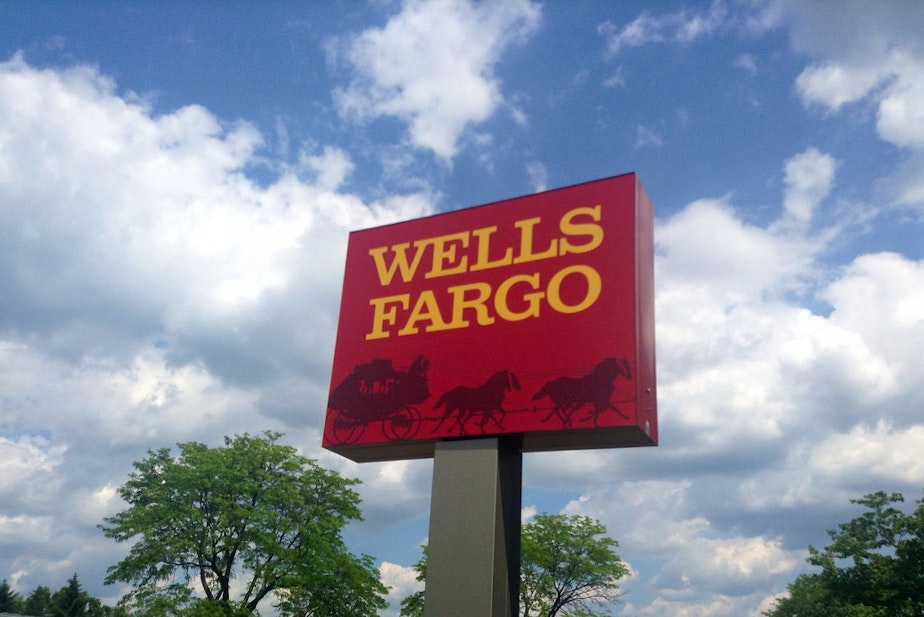Seattle wanted to break up with Wells Fargo. Then it committed to three more years

Breaking up is hard — especially if you're a city trying to break up with a bank.
Especially if the other banks aren't all that interested in dating you.
That's more or less why Seattle just signed a three year extension to keep banking with Wells Fargo, even though officials voted a year ago to cut ties with the bank because of its role in funding the Dakota Access Pipeline.
The city council resolved to find a new financial institution before ending the Wells Fargo contract at the end of 2018. But this week, City Finance Director Glen Lee gave them an update on the search for a bank.
"The reality is, none wanted to participate and bid for our services, and given the time it takes to shift to a new service, we felt it was prudent for the city to move forward," Lee said.
Sponsored
Lee said some banks offered to run certain services, but none applied to handle the city's lending and deposits. Wells Fargo provides lending and deposit services for the city, processing about five-billion dollars a year in city finances.
Since no other bank applied, Seattle will bank with Wells Fargo for three more years.
In the meantime, city staff are studying the idea of a municipal bank, which Lee said Mayor Jenny Durkan supports. That idea was proposed at the state level in the past, but never gathered steam. City staff want to hire a consultant, possibly in conjunction with other Washington cities, to set up a public bank.
Cities such as San Francisco and L.A. have also considered municipal banking, but only North Dakota and Native American tribes currently have their own banks.
Environmental activists and Native American leaders in the region celebrated last year's decision by the Seattle City Council. Under the ordinance approved last year, the city of Seattle will not work with any business that engages in unethical business practices.
Sponsored
The council voted to stop banking with Wells Fargo because it’s a lender for the Dakota Access Pipeline — and because of a scandal last year in which accounts were set up for clients without their knowledge. More than a dozen banks are connected to the pipeline, including CitiBank, I-N-G, Chase and Bank of America.

